
Jan 5 , 2019
By BEHAILU AYELE ( FORTUNE STAFF WRITER )
Dashen Bank, one of the leading private banks, declared a 14pc increase in net profit, registering 904.3 million Br during the last financial year.
The Bank’s earnings per share (EPS) have shown a slight increase reaching 430 Br. The EPS represents 46pc of what it returned to shareholders five years ago.
“The fiscal year was challenged with public unrest, the forex crunch and the rise of commodity prices,” says Asfaw Alemu, president of the Bank. “Also, the slow growth rate of EPS is related to the size of the capital raised.”
A financial expert suggests the bank needs to come up with a strategy to increase profit.
“Dashen should come up with strategies to increase profit after tax or slowdown capital growth,” says Abdulmenan Mohammed, a financial expert with over a decade and a half experience. “Further stagnation in EPS is inevitable.”
The Bank has also raised its paid-up capital by 15pc to 2.2 billion Br.
Dashen’s revenue has also increased in the reported time, reaching 4.4 billion Br, where 3.2 billion Br was generated from interest income, loans and treasury bills. An additional 656 million Br was earned from net fees and commissions.
Though the Bank’s revenue in general increased, the gain from foreign exchange dealing decreased by close to half or 146.4 million Br.
“We have been surrendering a substantial amount of our forex earnings to the central bank,” Asfaw said. “Also, we sold the forex at the buying rate, which affects our earnings.”
The governing bank in the reporting period obliged banks to cede 30pc of their forex at the buying rate.
The increase in income is also accompanied by a substantial expense increase.
The salary and benefits expenses reached one billion Birr, a 35pc increase from last year, while administration costs reached 587.3 million Br.
Branch expansion, inflationary pressure and the adoption of technologies are the major causes for the rise in expenses, according to Asfaw.
Last year Dashen opened 70 new branches and hired 1,653 new employees, pushing the total number of employees to 8,950. It also procured 103 automated teller machines (ATM), built a data centre and launched a digital financial platform, Amole.
Dashen’s deposit interest rose by 55pc to 1.4 billion Br.
“This must have been due to increased interest rates and massive growth in deposits,” Abdulmenan says.
The Bank mobilised a deposit of 36 billion Br and disbursed 64pc of it as loan and advance payments. The Bank’s loan-to-deposit ratio is a bit lower than the industry average, which is 67pc.
“This reveals that there is some room for improvement,” Abdulmenan told Fortune. “The management of Dashen should work hard to increase loan disbursements.”
For the bank executive, the issue is manageable, and the bank has done well given the challenges. “With the amount of resources we mobilised, the ratio is reasonable,” argued Asfaw. “Also with the credit cap in place, the Bank was successful in distributing the mobilised deposits.”
The NBE set a loan ceiling on industries other than the export and manufacturing sectors in the reporting period.
For Asfaw, who has been leading the Bank for the past four years, the reserve the bank needs to hold, which is five percent of assets coupled with the 15pc liquidity and 27Pc NBE bill purchase requirements, affect loan disbursement.
The provisional loans made a huge reversal recording 104.8 million Br in the reporting period. The reversal accounts for more than 10pc of profit.
“Such massive reversal of provisional loan happens rarely,” Abdulmenan says. “I hope the Bank followed prudential approach when calculating the provision.”
The bank executive attributed the reversal for the cleared doubtful-loans of two years ago. The Bank reduced the provisions for doubtful-loans and advances by 31pc to 228 million Br.
“We have cleared out doubtful-loans of the different sectors including coffee producers, from the preceding year,” Asfaw told Fortune. “We are prudent in the report and this shows the quality of the assets.”
The Bank’s mixed performance came with various challenges.
On his report to the shareholders, the Bank’s chairperson, Neway Beyene, claimed political unrest affected the business environment.
The unrest brought damage to businesses and an interruption in banking services making cash transportation difficult, according to him.
The liquidity analysis shows the Bank’s liquidity level increased in the fiscal year. The cash and bank balances grew by 33pc reaching seven billion Birr. When compared with its total assets of 45.4 billion Br, the liquidity amounts to 15.5pc.
With the increase in its capital the Bank’s non-distributable reserves reached 4.2 billion Br.
“Dashen is a well-capitalised bank with huge liquid resources, and it should use its strong capital efficiently,” Abdulmenan suggested.
PUBLISHED ON
Jan 05,2019 [ VOL
19 , NO
975]

Fortune News | Sep 24,2018
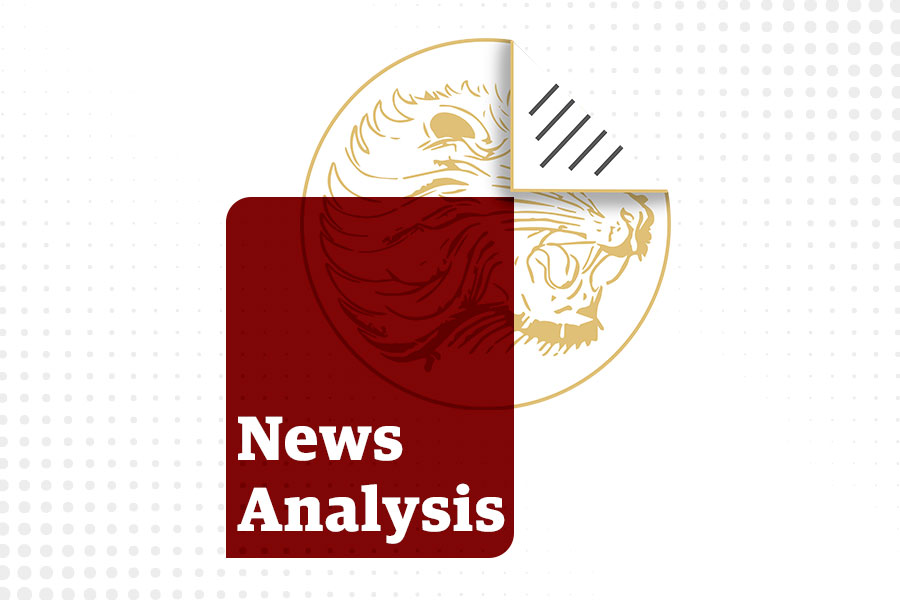
News Analysis | May 04,2024
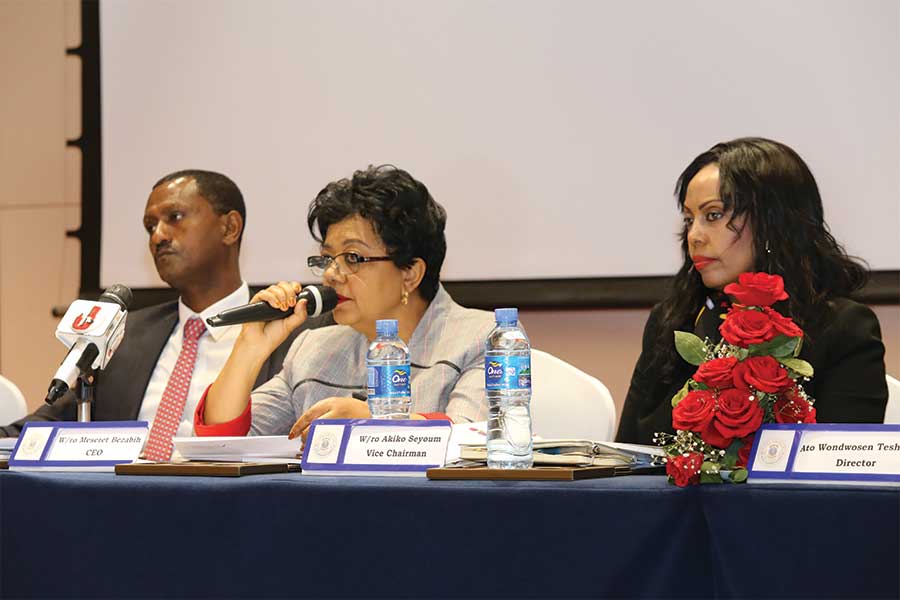
Fortune News | Nov 30,2019

Radar | Oct 05,2019

Fortune News | Aug 30,2025
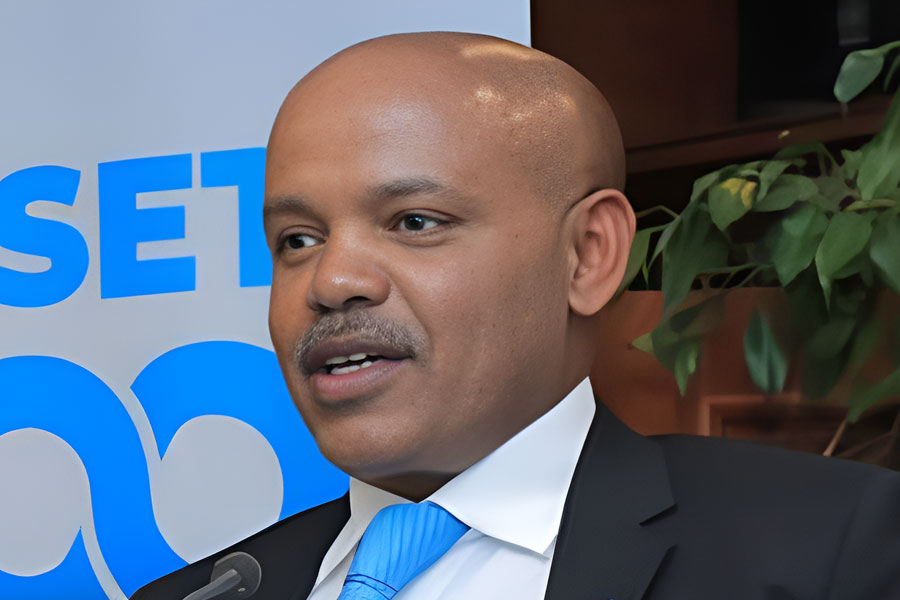
News Analysis | Feb 03,2024
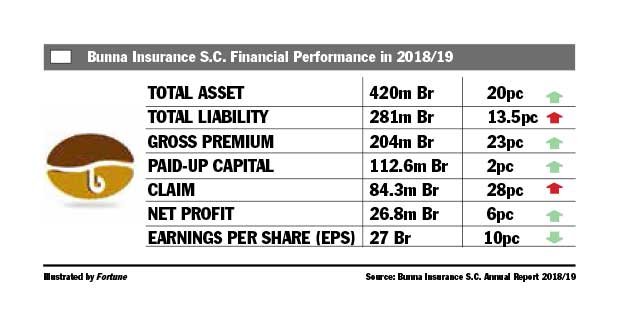
Fortune News | Dec 07,2019
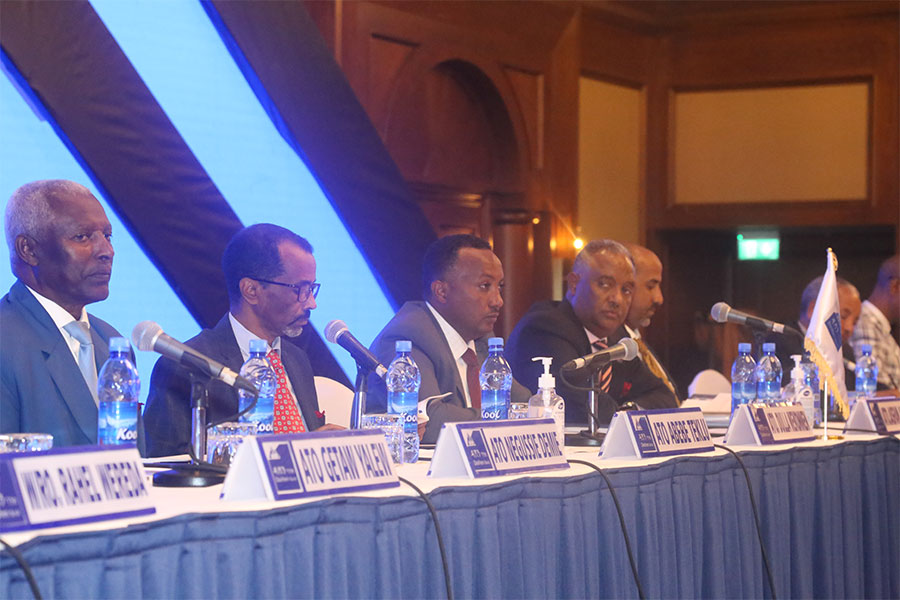
Fortune News | Nov 27,2022

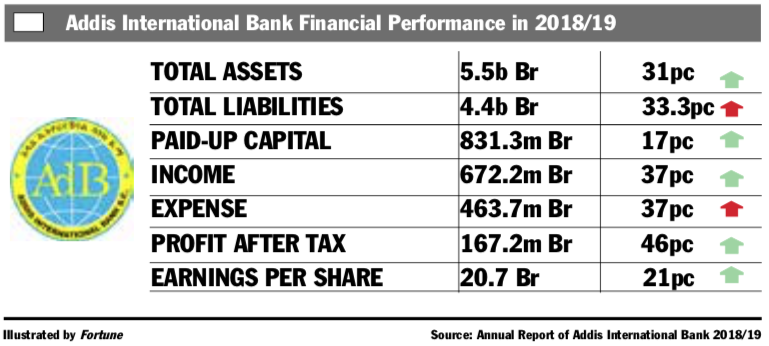
Fortune News | Dec 28,2019

Dec 22 , 2024 . By TIZITA SHEWAFERAW
Charged with transforming colossal state-owned enterprises into modern and competitiv...

Aug 18 , 2024 . By AKSAH ITALO
Although predictable Yonas Zerihun's job in the ride-hailing service is not immune to...

Jul 28 , 2024 . By TIZITA SHEWAFERAW
Unhabitual, perhaps too many, Samuel Gebreyohannes, 38, used to occasionally enjoy a couple of beers at breakfast. However, he recently swit...

Jul 13 , 2024 . By AKSAH ITALO
Investors who rely on tractors, trucks, and field vehicles for commuting, transporting commodities, and f...

Oct 25 , 2025
The regulatory machinery is on overdrive. In only two years, no fewer than 35 new pro...

Oct 18 , 2025
The political establishment, notably the ruling party and its top brass, has become p...

Oct 11 , 2025
Ladislas Farago, a roving Associated Press (AP) correspondent, arrived in Ethiopia in...

Oct 4 , 2025
Eyob Tekalegn (PhD) had been in the Governor's chair for only weeks when, on Septembe...